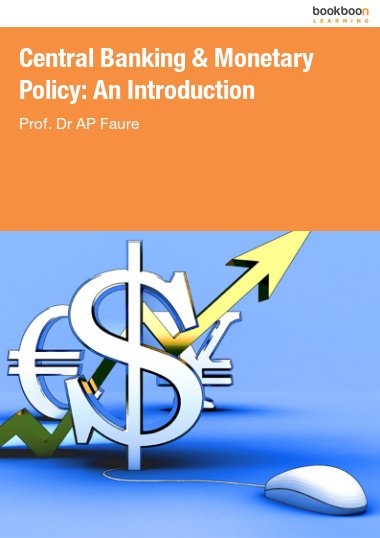This book presents an introduction to central banking and monetary policy. We, the public, accept the following as money (M) (that is, the means of payments / medium of exchange): notes and coins (N&C) and bank deposits (BD). Because we do, we place banks in a unique situation: the major part of their liabilities is BD; therefore they are able to create BD simply by making loans. Because banks are aggressive competitors and their creditworthiness checks on customers are therefore not always sober, they are inherently unstable. This means the public needs an entity to monitor the banks and to curb excessive money creation: a central bank. Excessive money creation causes inflation and inflation management by the public (ie hedging) diverts attention away from productive behaviour; this is not conducive for economic output and welfare. Central banking is not just about monetary policy. It is also about being banker and advisor to government and managing the money and banking system.


